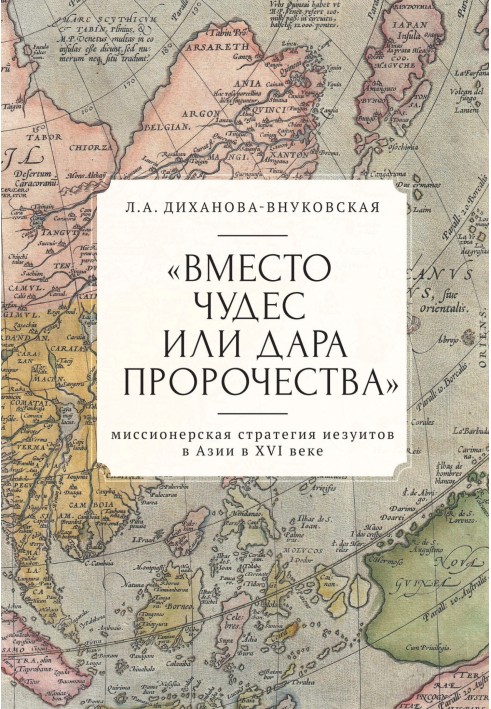“Instead of miracles or the gift of prophecy”: the missionary strategy of the Jesuits in Asia in the 16th century
 Instant download
Instant download
after payment (24/7)
 Wide range of formats
Wide range of formats
(for all gadgets)
 Full book
Full book
(including for Apple and Android)
The Portuguese trading empire served as the basis for the creation of a global network of Jesuit missions in the 16th century. Faced with a cultural environment completely alien to Europe, the Jesuits created their own missionary strategy - a policy of cultural accommodation that corresponded to the ideas of soteriology, which became a unifying element for the European society of the early modern period. It allowed the order not only to actively pursue Christianization, but also to socially integrate into the societies of such geopolitically defining states of East and South Asia as Japan, China and India. The book provides a comprehensive analysis of the policy of cultural accommodation. This was achieved through the use of an extensive documentary base, as well as a move away from fragmentation in covering the activities of the Jesuit missions in Asia. In the study they are considered as a single trans-regional phenomenon - the province of India, which in the 16th century. covered vast territories from the coast of East Africa to the Japanese archipelago. The monograph clearly demonstrates that, despite the enormous distances and difficulties of navigation, its individual administrative and territorial units were interconnected not only by a common doctrine and management system, but also by a unified missionary strategy.
Data sheet
- Name of the Author
- Любовь Диханова-Внуковская Андреевна
- Language
- Russian
Reviews
Глибоке дослідження єзуїтських місій у XVI столітті
Книга «Замість чудес чи дару пророцтва» є вражаючим дослідженням місіонерської стратегії єзуїтів в Азії, яка відкриває нові горизонти розуміння культурної акомодації та її впливу на християнізацію. Автор майстерно поєднує історичні факти з культурними аспектами, що дозволяє читачеві глибше усвідомити, як єзуїти адаптували свої методи до різних культурних середовищ. Використання великої документальної бази надає книзі наукової ваги, а комплексний аналіз їхньої діяльності в таких країнах, як Японія, Китай та Індія, демонструє, як місії стали частиною глобальної мережі. Ця монографія не лише висвітлює історичні події, але й спонукає до роздумів про взаємодію культур у складні часи. Рекомендую цю книгу всім, хто цікавиться історією, культурологією та релігієзнавством, адже вона є важливим внеском у вивчення єзуїтських місій та їхнього впливу на світову історію.











